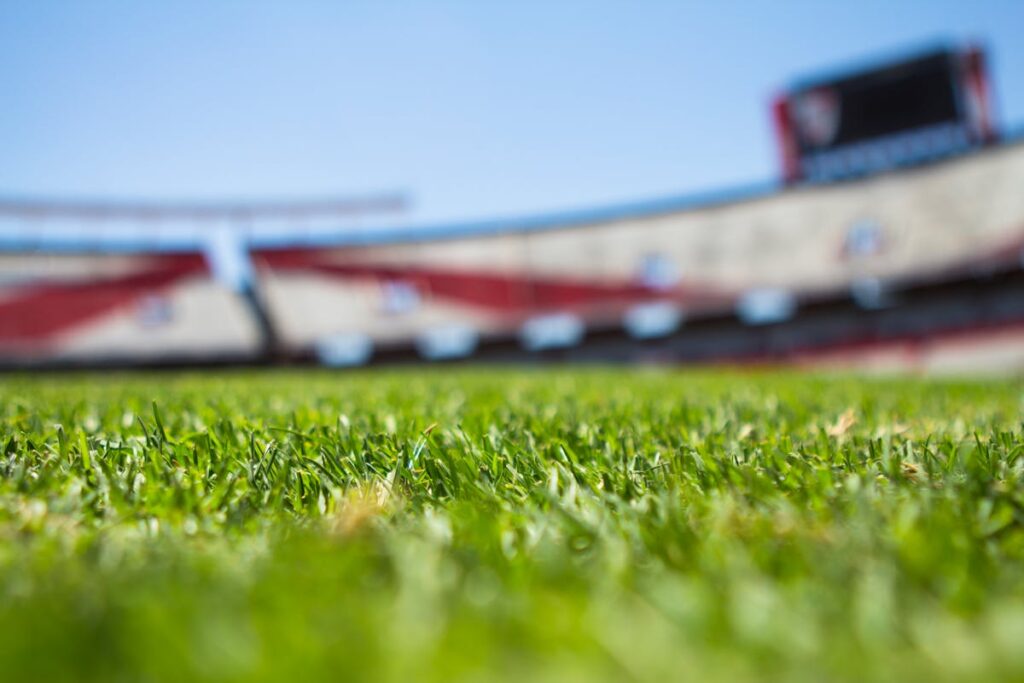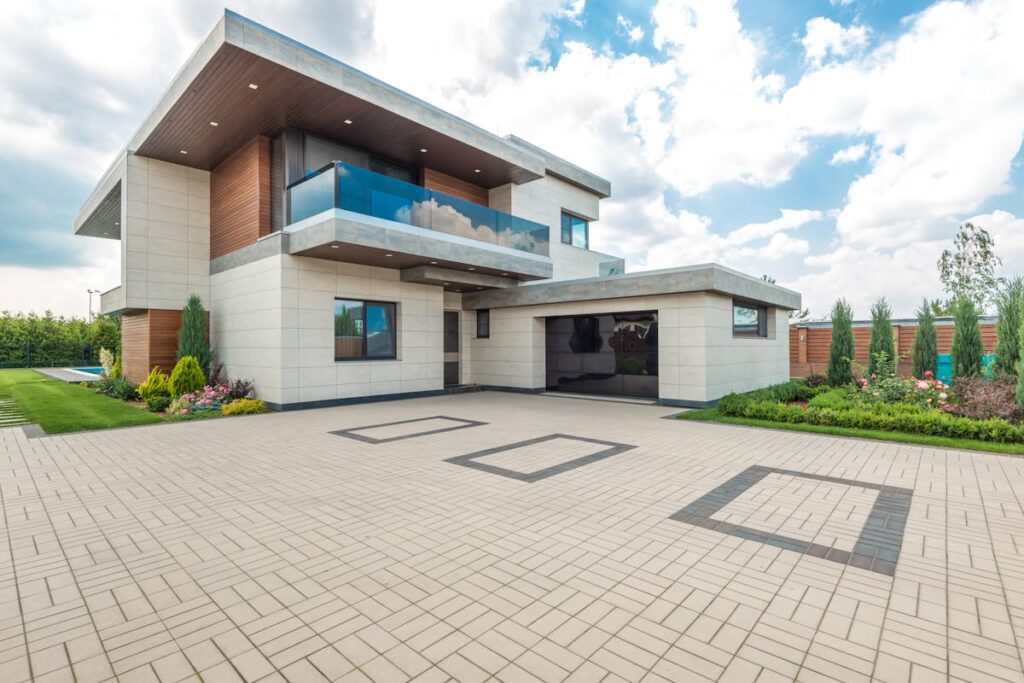In an era of unpredictable weather and frequent flooding, property owners are rethinking how they handle stormwater. Enter the swale — a quiet hero of landscape design. Swales are shallow, vegetated channels or depressions that manage water flow while blending seamlessly with nature. At Ware Landscaping, we see swales not just as drainage tools but as key players in sustainable outdoor design. They slow down runoff, prevent erosion, filter pollutants, and recharge groundwater — all while adding beauty to your landscape.
What Exactly Is a Swale?
A swale is essentially a low-lying, gently sloped trench or channel lined with grass or vegetation. It’s designed to capture, slow, and redirect stormwater runoff from roofs, driveways, or yards. Instead of letting rainwater rush toward storm drains or flood-prone areas, a swale encourages infiltration — allowing water to soak into the soil naturally.
There are two main types of swales: natural and constructed. Natural swales often occur in valleys or marshy areas, while constructed ones are purposefully built to manage drainage in residential, commercial, or urban settings. Either way, they serve as an eco-friendly alternative to conventional drainage systems that rely on pipes and grates.
At Ware Landscaping, we specialize in building functional swales that complement your yard’s natural contours, helping you achieve both drainage efficiency and aesthetic harmony.
Benefits of Installing a Swale on Your Property
1. Prevents Flooding and Foundation Damage
One of the biggest threats to any home’s foundation is excess water. A properly designed swale directs water away from your structure, protecting your home from costly foundation repairs and basement flooding.
2. Filters Pollutants and Improves Water Quality
Swales naturally filter out debris, sediments, and pollutants from runoff before it seeps into groundwater. Studies show pollutant removal rates as high as 70–83% for total suspended solids (TSS) — a major environmental benefit that helps keep local waterways clean.
3. Reduces Soil Erosion
By slowing down fast-moving water, swales reduce erosion along slopes and prevent soil displacement. This is particularly valuable for properties with hilly or uneven terrain.
4. Recharges Groundwater
Instead of letting water run off into the street, swales allow it to percolate back into the earth, replenishing aquifers and maintaining healthy soil moisture levels.
5. Adds Greenery and Aesthetic Appeal
A well-designed swale doesn’t just manage water — it beautifies your yard. With lush native plants, ornamental grasses, or wildflowers, your swale becomes a functional garden feature.
At Ware Landscaping, we often integrate bioswales, an enhanced version that includes native plantings and engineered layers like sand and gravel to maximize filtration and longevity.
Swales Are Older Than You Think
The concept of swales isn’t new. Ancient civilizations like the Etruscans and Romans used them for irrigation and erosion control thousands of years ago. This ancient wisdom resurfaced in the 1970s when permaculture pioneers such as Bill Mollison and David Holmgren reintroduced swales as part of sustainable agriculture.
Today, they’re used in everything from urban developments in the U.S. to arid farms in Africa. The United Nations even recommends swales for soil conservation and flood mitigation — proof that this ancient technique remains a modern necessity.
Swale Design: The Science Behind the Slope
Building an effective swale is part art, part engineering. Factors like slope, soil type, rainfall volume, and vegetation all play a role in its success. Typically, swales are built with a slope of 1–4%, ensuring water flows gently enough to soak in rather than erode the channel.
A standard design may include:
- A gentle slope to guide water.
- A berm or mound on the downhill side to hold water.
- Native plants or grasses that stabilize soil and absorb moisture.
- Check dams or rocks to slow water in steep areas.
At Ware Landscaping, we conduct site-specific assessments to tailor swale designs to your property’s topography and soil composition. This ensures lasting performance and minimal maintenance.
Different Types of Swales
| Type of Swale | Description | Ideal Use | Key Features |
|---|---|---|---|
| Natural Swale | Formed naturally by the land’s contours. | Large open spaces, farms, or natural reserves. | No human intervention; supports native ecosystems. |
| Drainage Swale | Grass-lined shallow channels that redirect water. | Residential yards, driveways, or roadside ditches. | Low-cost; easy maintenance; prevents flooding. |
| Bioswale | Engineered system with vegetation and gravel layers. | Urban and commercial landscapes. | Filters pollutants; boosts water quality. |
| Permaculture Swale | Dug along contour lines to harvest rainwater. | Agricultural or sloped properties. | Retains moisture for crops; minimizes runoff. |
Each swale type has unique strengths — and at Ware Landscaping, we help clients choose what works best for their terrain and goals.
Why Partner With Ware Landscaping for Your Swale Project?
Building a swale isn’t just about digging a trench — it’s about understanding how water moves through your landscape. At Ware Landscaping, our expertise in drainage design and eco-friendly construction ensures your swale works efficiently year-round.
Here’s what sets us apart:
- Custom Designs: Every yard is unique. We tailor swales to your specific soil, slope, and runoff volume.
- Eco-Focused Approach: We use native plants and sustainable materials to create low-maintenance systems.
- Full-Service Drainage Solutions: From French drains to rain gardens and swales, we integrate multiple systems for optimal water control.
- Proven Results: Homeowners in Naperville and surrounding areas trust Ware Landscaping to protect their properties with long-lasting drainage guarantees.
Bringing Function and Beauty Together
Swales bridge the gap between form and function. They’re a simple yet elegant solution to complex drainage problems — turning water from a threat into an asset. Whether you’re battling soggy lawns, basement flooding, or erosion, Ware Landscaping can design a system that not only solves the issue but enhances your property’s natural beauty.
If you’re ready to take a smarter, greener approach to stormwater management, contact Ware Landscaping today. Let’s transform your yard into a sustainable, flood-resistant landscape that thrives — rain or shine.
Our Recent work That shows Our Standard
Contact Ware Landscaping
📍 Naperville, IL
🌐 www.warelandscaping.com
📞 (630) 885-6370
Ware Landscaping — Protecting your property, one drop at a time.








